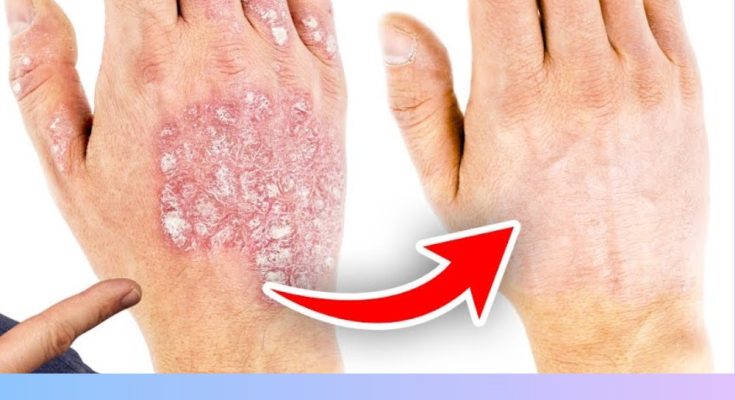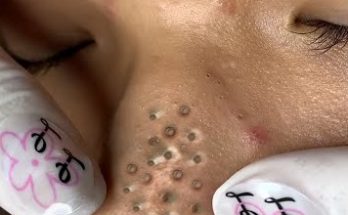The “best” remedy for eczema can vary depending on the individual, the type of eczema, its severity, and triggers. Eczema is a chronic condition, and treatment often involves a multi-faceted approach aimed at managing symptoms, preventing flares, and healing the skin.1
Here’s a breakdown of what constitutes the “best” approach, which often combines several strategies
1. Moisturization (The Foundation)
This is arguably the most crucial and universal remedy for all types of eczema. Eczema compromises the skin barrier, leading to dryness and increased susceptibility to irritants.2
- Emollients: Thick creams, ointments (like petroleum jelly or mineral oil-based products), or balms are superior to lotions. They create a protective barrier on the skin, trapping moisture and reducing water loss.3
- Best Practice: Apply a generous amount of moisturizer at least twice daily, and ideally within 3 minutes of bathing or showering (while the skin is still damp) to lock in moisture.4
- Ingredients to look for: Ceramides, hyaluronic acid, petrolatum, mineral oil, shea butter.
- Avoid: Products with fragrances, dyes, or harsh chemicals, as these can irritate sensitive eczema-prone skin.5
2. Topical Corticosteroids (The Go-To for Inflammation)
These are the most common and effective medications for calming eczema flares. They work by reducing inflammation and itching.6
- Mechanism: Reduce redness, swelling, and itching.7
- Strengths: Available in various strengths (mild, moderate, potent, super potent). Your doctor will prescribe the appropriate strength based on the severity and location of your eczema. Mild corticosteroids (like hydrocortisone 1%) are available over-the-counter.8
- Application: Apply thinly only to affected areas, usually once or twice a day during a flare.9
- Caution: Prolonged use of potent corticosteroids on thin skin (like the face or skin folds) can lead to side effects such as skin thinning, stretch marks, and discoloration.10 Always follow your doctor’s instructions.
3. Topical Calcineurin Inhibitors (Steroid-Sparing Option)11
These medications (e.g., tacrolimus ointment, pimecrolimus cream) are non-steroidal and work by suppressing the immune cells that cause inflammation.
- Advantages: Can be used on sensitive areas (like the face and eyelids) where prolonged steroid use is not ideal. They don’t cause skin thinning.
- Use: Often used for maintenance therapy to prevent flares or for areas where steroids are a concern.
- Side Effects: May cause a temporary burning or stinging sensation when first applied.12
4. Identifying and Avoiding Triggers
This is a critical aspect of long-term management. What triggers eczema can be highly individual.
- Common Triggers:
- Irritants: Soaps, detergents, harsh cleansers, wool, synthetic fabrics, perfumes, certain chemicals.13
- Allergens: Dust mites, pet dander, pollen, mold, certain foods (less common as a primary trigger in adults, more so in infants).14 Patch testing or allergy testing can sometimes help identify specific allergens.15
- Environmental factors: Dry air, excessive heat or sweating, rapid temperature changes.16
- Stress: Emotional stress can worsen eczema.17
- Infections: Bacterial (e.g., Staphylococcus aureus), viral (e.g., herpes simplex), or fungal infections can flare eczema.18
- Strategy: Keep a symptom diary to help identify patterns and avoid triggers where possible.1
5. Anti-itch Measures
- Antihistamines: Oral antihistamines (especially sedating ones at night, like diphenhydramine) can help reduce itching and improve sleep. Non-sedating ones may be used during the day.
- Cool compresses: Applying cool, wet compresses to itchy areas can provide temporary relief.20
- Wet wrap therapy: Applying damp bandages or clothing over medicated skin can enhance medication absorption and provide intense hydration and cooling.21 This should be done under medical guidance.
6. Phototherapy (Light Therapy)
For moderate to severe eczema that doesn’t respond to topical treatments, controlled exposure to ultraviolet (UV) light can be effective.22
- Types: Narrowband UVB is the most common and effective type.
- Administration: Done in a doctor’s office or specialized clinic under strict supervision to ensure safety.
7. Systemic Medications (for Severe Eczema)
For severe, widespread eczema that significantly impacts quality of life and doesn’t respond to other treatments, systemic medications may be necessary.23
- Immunosuppressants: Medications like cyclosporine, methotrexate, or azathioprine suppress the immune system.24 They require careful monitoring due to potential side effects.
- Biologics: These are newer, targeted therapies that block specific pathways in the immune system involved in eczema.25 Dupilumab (Dupixent) is a common example, administered via injection.26 They are typically used for moderate to severe atopic dermatitis.27
- JAK inhibitors: Oral medications (e.g., upadacitinib, abrocitinib) that target specific enzymes involved in inflammation.28
8. Managing Stress
Stress can exacerbate eczema.29 Techniques like mindfulness, meditation, yoga, or counseling can be helpful.30
9. Treating Infection
If the skin becomes infected (e.g., oozing, crusting, redness spreading, fever), antibiotics (oral or topical) or antivirals may be needed.31
The “Best” Remedy is a Personalized Plan:
There isn’t a single “best” remedy for everyone. The most effective approach involves:
- Consulting a Dermatologist: A skin specialist can accurately diagnose your eczema type, identify triggers, and create a comprehensive treatment plan tailored to your needs.32
- Consistent Skin Care: Daily moisturizing and gentle skin care are fundamental.33
- Trigger Avoidance: Actively working to identify and avoid personal triggers.34
- Adherence to Medications: Using prescribed medications correctly and consistently during flares and for maintenance.35
- Patience: Eczema is a chronic condition, and finding the right balance of treatments can take time and adjustment.36
For current and personalized medical advice regarding eczema, it is essential to consult with a healthcare professional.


